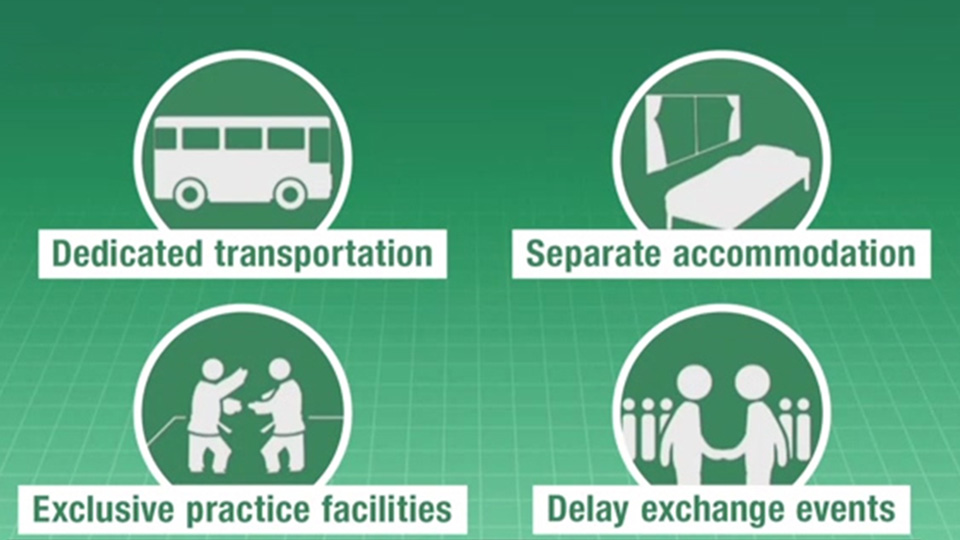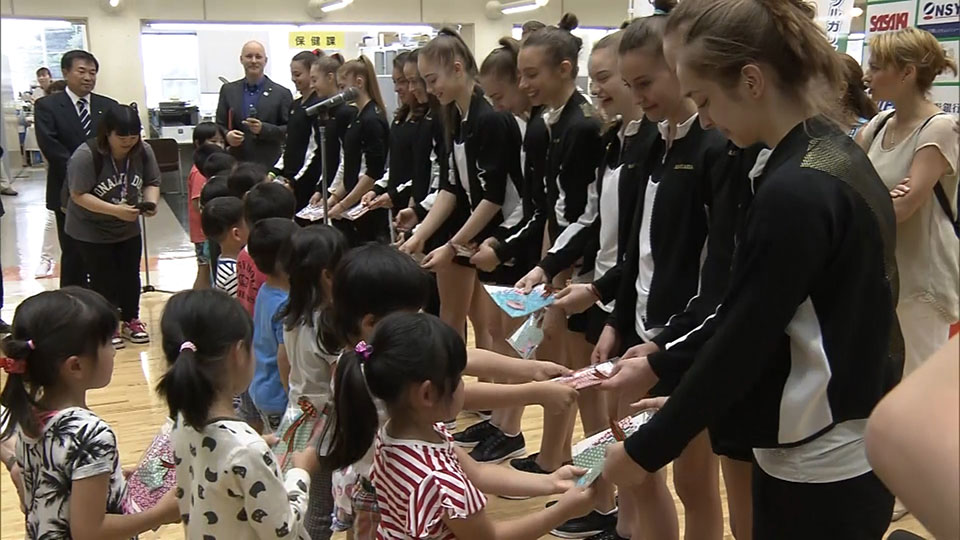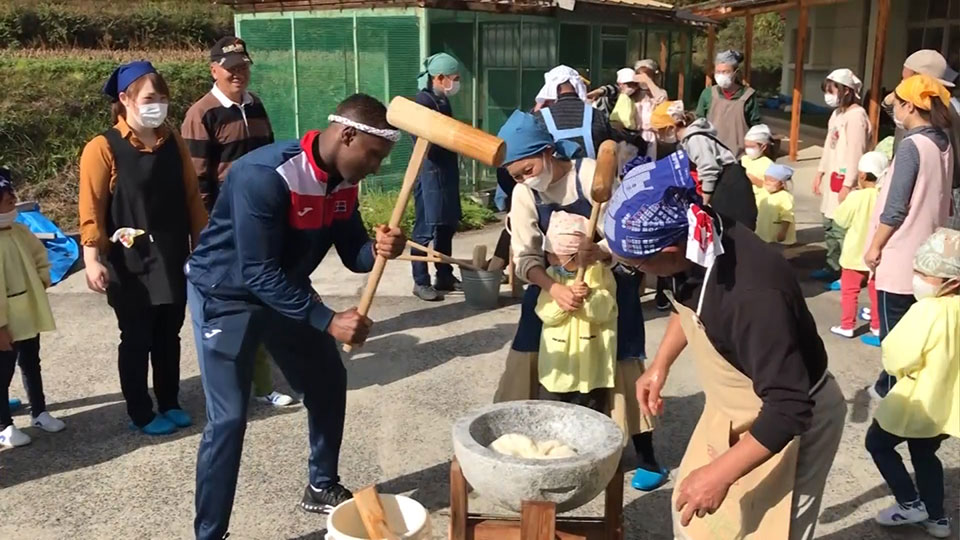Athletes from around the world will be coming to Japan in their droves next year for the Tokyo Olympics and Paralympics. Many will stay and train in 510 so-called host towns spread across the nation. The figure amounts to about a third of all municipalities in Japan.
In theory, the athletes get to prepare for the Games while experiencing Japanese culture and bonding with the locals. Their presence has been touted as a much-needed boost for Japan’s faltering regional economies.
The plan was, of course, drawn up in a pandemic-free world. Things are different now. Officials from the central government and the Tokyo Games organizing committee compiled a set of anti-virus guidelines in early December.
New measures include dedicated buses to transport the athletes, and individual accommodations.
The athletes will also be required to only practice in designated facilities as part of a broader recommendation to limit contact with local people. They must also take PCR tests when asked.
In principle, there should be limited contact between the locals and the athletes before the Games get underway. Interaction is only encouraged afterward – subject to proper anti-virus measures.

Added pressure on cash-strapped communities
The city of Murayama in the northern prefecture of Yamagata has already welcomed the Bulgarian rhythmic gymnastics team three times since 2017. Officials see the effort as a success for both athletes and locals. Crucially, it has also served as a chance to revitalize the economy. Like many other communities in Japan, Murayama has been hurt by a falling birthrate and aging population.

But the city is among a number of municipalities that are worrying about the new guidelines – especially the extra costs. Officials have booked an entire hotel for the Bulgarians, and they’re considering how best to carry out PCR tests for a range of people including the athletes, volunteers, drivers and other officials.
Nishizuka Hitoshi, the city’s Tokyo 2020 exchange division manager, expects the measures to cost about ¥4 million, or about US$38,000. He points out that Murayama is already facing a severe economic situation due to the pandemic.
Exchanges face the chopping block
The town of Kitahiroshima in the western prefecture of Hiroshima is registered to host athletes from the Dominican Republic. Due to safety concerns, local officials are now reconsidering whether to go ahead with an exchange program that would have seen the Caribbean island nation’s judoka and track-and-field athletes train with local university students.
Education board official Onaru Junichiro says there’s no point in hosting athletes without exchange events. He admits he’s struggling to find a solution.

Ishizaka Yuji, an associate professor at Nara Women’s University, is an expert on the management side of the Olympics and Paralympics. He says the pandemic may be dampening the mood among Japan’s municipalities. Now, many only see an increasing burden -- and vastly diminishing benefits. If local communities are to gain anything at all, Ishizaka says exchange programs must be held after the Games.

